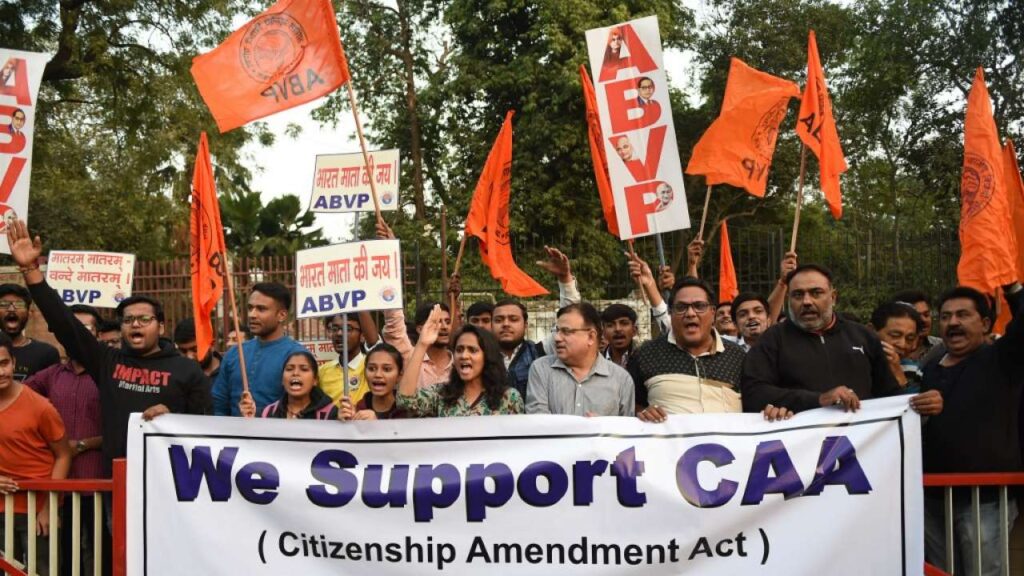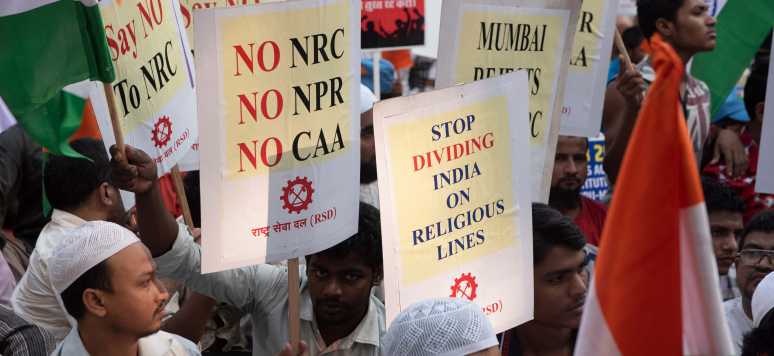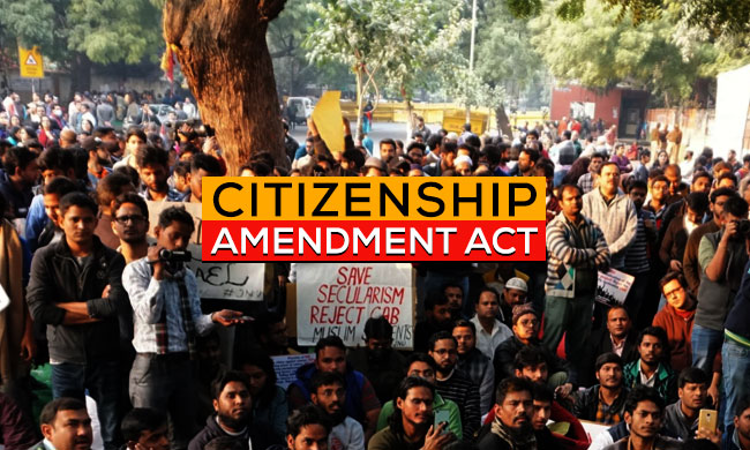The Citizenship Amendment Act (CAA), passed in 2019 and recently implemented, has ignited debate in India. The ministry of home affairs has notified the Citizenship Amendment Act’s (CAA) rules yesterday, paving the way for the law’s implementation across the country.This comes weeks after union home minister Amit Shah declared that the law would be implemented before the Lok Sabha elections.

What is the CAA?
The CAA expedites citizenship applications for persecuted minorities – Hindus, Sikhs, Buddhists, Jains, Parsis, and Christians – from Afghanistan, Bangladesh, and Pakistan. These groups must have entered India before December 2014.
Why was the CAA passed?
The government argues the CAA protects minorities facing religious persecution in these Muslim-majority countries. They portray it as a humanitarian measure.

Who is excluded?
The CAA conspicuously excludes Muslims, sparking accusations of religious discrimination. This is a major point of contention, seen by many as violating India’s secular constitution.
What are the concerns with the CAA?
Critics argue the CAA is discriminatory and part of a larger agenda to marginalize Muslims in India. They also fear it, when coupled with the National Register of Citizens (NRC), could render many stateless, particularly Muslims.
What is the NRC?
The NRC is a proposed registry identifying Indian citizens. Critics worry it will disproportionately target Muslims who may lack documentation. The CAA, they argue, offers a path to citizenship for non-Muslims excluded from the NRC, but not Muslims.
What are the protests about?
The protests erupt from anxieties about the CAA’s discriminatory nature and its potential to disenfranchise millions. Many fear it undermines India’s secular foundation.
What has been the impact?
The CAA has resulted in widespread protests, some turning violent. Several states have refused to implement it, challenging its constitutionality in court. The CAA’s long-term implications are yet to unfold.
What are the arguments in favor of the CAA?
Supporters argue the CAA protects persecuted minorities and doesn’t take away citizenship from any existing Indian. They view it as a separate issue from the NRC.

What are the arguments against the CAA?
Opponents argue the CAA excludes Muslims based on religion, violating the Constitution. They see it as part of a larger agenda to marginalize Muslims and erode India’s secular character.

What’s next for the CAA?
The CAA’s legality is being contested in the Supreme Court. The government’s implementation plans and the fate of the NRC remain uncertain. The CAA has ignited a fierce debate about India’s identity and its commitment to religious pluralism.
Looking beyond the headlines:
The CAA is just one aspect of a larger issue – the rise of Hindu nationalism and its impact on India’s secular character. Understanding the CAA requires examining its place within this broader context.












